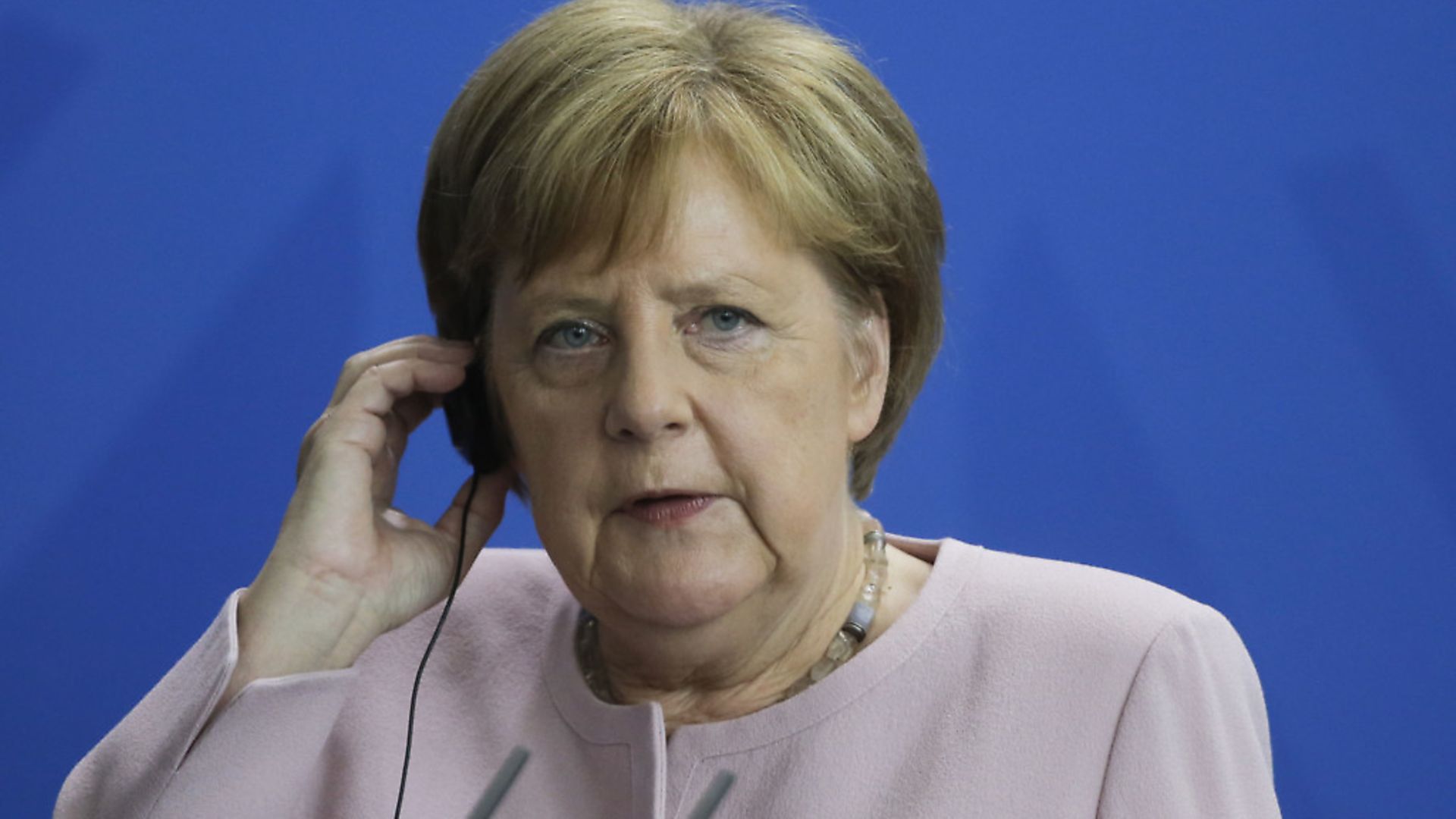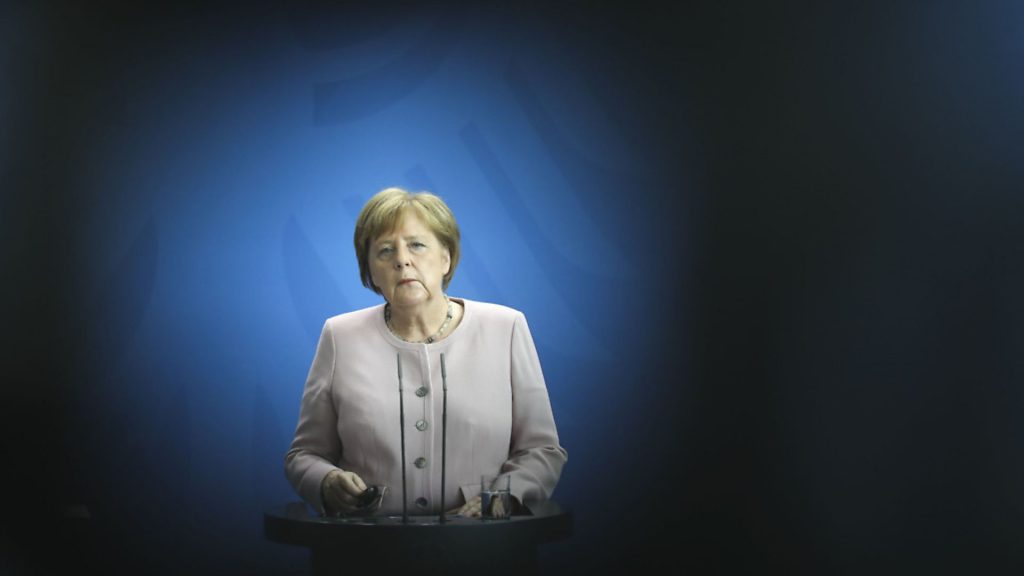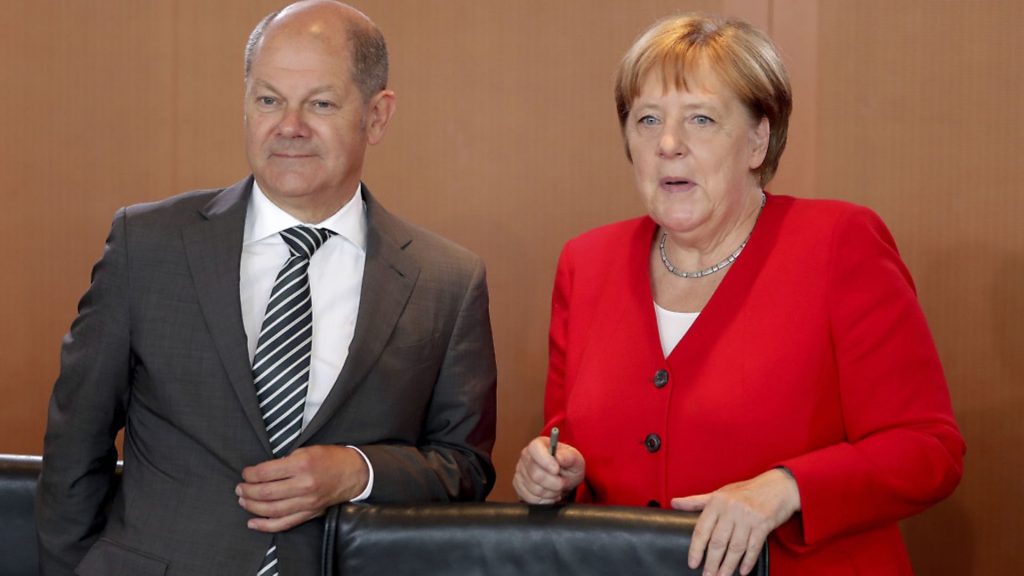
To my mind the most moving part of this month’s D Day commemoration was the presence, silent, of Angela Merkel.

She symbolised the contrition of today’s Germany and its utter repudiation of the Nazi tyranny and philosophy which overwhelmed her country and Europe.
Today’s Germany is a kind of miracle, born on the banks of the Rhine in Bonn – not quite a manger, but far more modest than Berlin – only five years after D Day.
This August is the 70th anniversary of the creation of the Federal Republic of Germany. It is as important as D Day – maybe more so – in explaining the peace and prosperity of post-war Europe and the European Union.
There is a special reason for Britain to celebrate the Federal Republic. We largely created it.

After Hitler’s suicide on April 30, 1945, Churchill set upon a policy of conciliation, reconstruction and democracy in Germany. He launched an era of intense engagement, starting with direct rule by field marshall Montgomery, and leading to the creation of a social market economy and a federal democracy inaugurated in 1949.
Total victory was followed by total engagement, acting in concert with the United States.
Churchill, Truman and their lieutenants were consciously learning from the mistakes of the past. They talked of ‘avoiding Versailles’ and the triple whammy of reparations, belligerence and disengagement pursued by Britain, the US and France after the First World War; a policy which helped to undermine the Weimar Republic and produce Hitler.
It is a rare case of learning from the past: wisdom that came from personally experiencing the disasters of inter-war Europe. Churchill had been at Lloyd George’s right hand in 1918. He was the siren warning in the 1930s of the perils of treating central Europe as “far away … of which we know nothing”, as Chamberlain fatefully said of Czechoslovakia in 1938.
In 1945, Britain and its allies stayed in Germany. Seven decades later, British and American troops have still not left.
The Germany largely created by Britain was a federal state whose democracy, industrial base, welfare system, territorial distribution of power, and relations between employers and workers, soon became the envy of the world. They gave rise – also with Churchill’s blessing – to the European Union, a union first and foremost with France, which expanded to embrace the whole of democratic Europe.
West Germany’s success undermined East Germany, under Soviet control after Stalin colonised central and eastern Europe in 1945. To keep communist East Germany going even into a second decade required the Berlin Wall and one of the most repressive police states in history. Even this was insufficient to sustain the Soviet empire. In 1989 the wall came down and the federal republic subsumed its eastern neighbour within a year.
The success of the Federal Republic contrasts favourably not only with Russia and communism to the east, but with Britain and in its post-imperial trauma to the west.
In the seven decades since Konrad Adenauer’s election in 1949, the Federal Republic of Germany has had eight chancellors. Britain has had 15 prime ministers in the same period. Three of Germany’s chancellors – Adenauer, Kohl and Merkel – are of historic stature, while none was a notable failure. By contrast, Britain has had no clearly outstanding leader since Churchill, while most of its post-war prime ministers, including Cameron and May, have failed.
A critical mistake was not to implement at home the reforms which we ourselves introduced into Germany after 1945. This in large part explains Brexit – a revolt against failure and poverty, particularly in the parts of England which are poorest and most failed.
If Brexit happens, Britain will soon lag further still behind Germany. Far better to celebrate the 70th anniversary of Britain’s greatest post-war triumph – the creation of the Federal Republic – by copying not abdicating.









